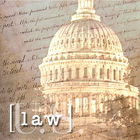
Under Article VI of the US Constitution: Under Article 1 of the Convention against Torture: Under Article 2 of the Convention against Torture: Under Article 4 of the Convention against Torture: Under the US Foreign Assistance Act: |
CHENEY ENDORSES TORTURE DESPITE LEGAL BANS, UPROAR PROMPTS PLEDGES NOT TO TORTURE METHODS OF 'EXTREME INTERROGATION' CURRENTLY IN USE ARE CLEARLY DEFINED IN LAW, JUDICIAL PRECEDENT, EXPERIENCE OF GULAG SURVIVORS AS TORTURE 27 October 2006 US vice president Dick Cheney has publicly announced his support for an explicitly banned method of torture. In a radio interview with Scott Hennen of Fargo, North Dakota, the vice president said that mock drowning is "a no brainer", claiming the procedure has been a "very important tool", despite its being specifically illegal under American law, both written and in judicial precedent, and formally banned by the Pentagon. The watchdog NGO Human Rights Watch reports "As early as 1901, a U.S. court martial sentenced Major Edwin Glenn to 10 years of hard labor for subjecting a suspected insurgent in the Philippines to the 'water cure'", while in January 2006, more than 100 law professors from around the US wrote an open letter to AG Gonzales, stating that waterboarding is clearly torture under US law and specifically "mock execution by suffocation with water". The January 2006 open letter also specified that "Under the laws of the land, U.S. personnel who order or take part in waterboading are committing criminal acts—torture, assault, and war crimes—which are punishable as felony offenses". The professors called for a clarification in law and in practice of what precisely would constitute violation of the legal constraints imposed by the Constitution, international treaties and domestic law. The US Congress passed a law specifically barring inhumane treatment of prisoners held in US jails or by US personnel anywhere in the world. In June, the Supreme Court ordered the US government to observe the legal constraint on its authority to act beyond its own jurisdiction, or rather, to take responsibility in all places at all times for its legal responsibilities and not claim "legal limbo" status for specific geographical areas. During the summer and especially throughout August and September, the debate over what should be permissible under US law reached a new level of intensity when the White House tried to push through Congress new legislation that would grant the president the right to unilaterally choose which laws to follow and when, at his own discretion and with no risk of prosecution for committing serious abuses. The VP and even Pres. Bush himself personally lobbied members of Congress to grant this extraordinary and unprecented authority, but a solid center of Republican senators opposed the language, fearing it would lead to a deterioration of the balance of power between branches of government, provide carte blanche for the Executive and permit torture in a way likely to provoke enemies to kidnap and torture US personnel is retaliation or simply as an adoption of the new rules. An array of retired generals went to the press, and to Congress, took their case to the American people, and argued that any expansion of the accepted methods of harsh interrogation would amount to torture and would directly imperil the lives and wellbeing of US personnel serving in conflict zones. Families of service people and other members of Congress joined in the call to curb the Executive's reach for new powers and the right to use torture. But an agreement was reached between these leading Republican senators and the White House, and while moderating the language on what would be permissible as "alternative" interrogation techniques, new legislation was passed which grants Pres. Bush the authority to permit explicit violations of US and international law with no risk of prosecution for anyone involved. Now, for the first time, VP Cheney has publicly stated that he favors the use of torture, as such, in order to obtain information. While lobbying for the freedom to choose to use new techniques, he had never explicitly endorsed one before. And he does so now, without acknowledging that US law bars this type of treatment or that experts say its most direct result is to create unreliable information, which can be trusted neither in court nor for investigative purposes. Cheney did reportedly go on to say "We don't torture. That's not what we're involved in", but the caveat appeared to many observers to be just that, as there have been several cases where the current administration argued that it does not torture, only to seek a "redefinition" of torture in law or in treaty, in order to continue practices already in use. As rights groups and news media began circulating the comments, and leveling heavy criticism against the VP for his comments, the White House issued its own opinion that Cheney was not in fact endorsing "waterboarding" or any other form of torture. Cheney also tried to moderate the remarks, claiming he was speaking about something less severe than mock drowning. The White House had suggested it would not use the new counter-terrorism legislation the president recently signed to employ waterboarding as an interrogation technique, as it is still banned by law. Today, Pres. Bush responded to questions from the press by saying that the US did not engage in torture and did not intend to. The president spoke to reporters while appearing with NATO's secretary general at the White House, saying "This country doesn't torture, we're not going to torture. We will interrogate people we pick up off the battlefield to determine whether or not they've got information that will be helpful to protect the country." Amnesty International's executive director is quoted as saying "What's really a no-brainer is that no US official, much less a vice president, should champion torture", and expressing concern that Cheney's remarks signal a hidden agenda which the government is planning to implement but which they have openly denied until now. White House spokesman Tony Snow seemed to hint at two levels of discussion on torture, saying "You know as a matter of common sense that the vice president of the United States is not going to be talking about water boarding", then asking "You think Dick Cheney's going to slip up on something like this?" Others also questioned the validity of the denials. Sen. John Kerry (D-MA) reprotedly remarked "Is the White House that was for torture before it was against it, now for torture again?" Kerry —who was criticized for saying he voted for the iraq war before voting against it, during the 2004 presidential campaign— appeared to be describing a process whereby White House lawyers had requested information from the Justice Department on how to circumvent torture bans and implement certain forms of torture as interrogation techniques. A special report by Human Rights Watch relays reports by survivors of Soviet and North Korean gulag torture. Aleksander Solzhenitsen and Menachem Begin both describe eloquently and in intimate detail the horrors of being subject to prolonged sleep deprivation. Solzhenitsen describes how a female prisoner was told she was to raise her own blood pressure to lethal levels through sleep deprivation and repetitive motion. There are descriptions of how sleep deprivation was deliberately used to confuse and demean prisoners until they could no longer reason, precisely to force them to sign false confessions. William Oatis described in Life Magazine his experience while being detained by Czech security services in the 1950s:
Descriptions of a variant of waterboarding used by the military police of Chilean dictator Augusto Pinochet include victims being immersed in "250 liter barrels of oil which contained ammonia, urine, excrement, and sea water", which were allegedly accompanied by beatings, threats, insults and demands for information or to sign false confessions. "Waterboarding" as such is intended to induce the sensation of imminent drowning, and so is classified as mock execution. Both waterboarding specifically and mock execution generally have been ruled torture by domestic and international human rights courts. At present, there is no clear, publicly known US policy by which torture in any form would be permissible, and the current uproar has prompted a number of promises from top officials that no such activities will be employed or permitted. But a definitive and unwavering prohibition on torture as such or inhumane treatment has not yet been officially issued to military personnel by the civilian leadership. [s]
SUPREME COURT FINDS GUANTÁNAMO DETAINEES' RIGHTS DENIED BY BUSH MILITARY TRIBUNALS Pres. Bush's efforts to assume new powers in personally judging accused al-Qaeda co-conspirators "enemy combatants", then crafting a unique, extralegal war crimes tribunal system, where certain rights are denied the defendants, have been rejected by the Supreme Court. The Bush administration must now file criminal charges, either in civilian criminal court or before a standard military court martial. [Full Story] EUROPE INVESTIGATION SAYS EU GOV'TS LIKELY KNEW OF RENDITION NETWORK, TORTURE 'OUTSOURCING' Preliminary findings from the Council of Europe's investigation into human rights abuses and a secret CIA network of extralegal detention facilities report high probability that European governments knew what US forces were doing on their soil and in neighboring countries. [Full Story] SERIOUS LEGAL PROBLEMS INHERENT IN GHOST FLIGHTS & 'EXTRAORDINARY RENDITION' The principal legal problem relating to alleged "ghost flights", secret interrogations and the policy of "extraordinary rendition" is the extralegal nature of all three techniques. The issue centers on these processes being designed to operate beyond the scope of ordinary legal constraints. [Full Story] RICE STAKES OUT "NUANCED" POSITION ON ABDUCTIONS, TORTURE Amid growing concern relating to press reports of undisclosed CIA flights through or over European nations, with possible connections to the abduction of terror suspects and the use of secret detention centers, US Secretary of State Condoleezza Rice has sought to defend US policy. She admitted that the US might make mistakes in the "war on terror", but did not make specific reference to controversy over the alleged abduction of an innocent German citizen who, after 5 months of questioning in Afghanistan, proved to be a case of mistaken identity. [Full Story] WASHINGTON POST REPORTS SECRET GLOBAL NETWORK OF EXTRAJUDICIAL CIA INTERROGATION CAMPS Dana Priest, a Washington Post writer, reported yesterday astounding revelations about the existence of a global network of secret CIA-managed prisons which appear to violate numerous provisions of international law. The so-called "black sites" are said to exist or to have existed in at least 8 countries, including in eastern Europe, a fact which has sparked outrage across the continent. [Full Story] |
||||||||||||
|
|||||||||||||

